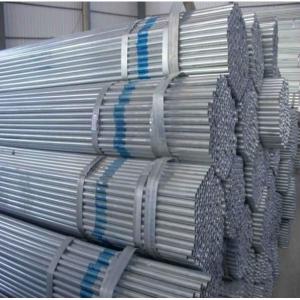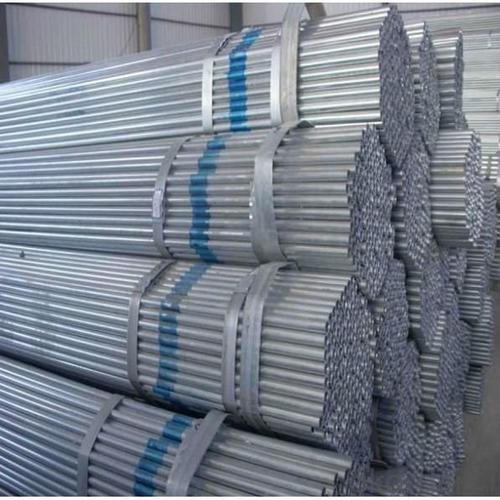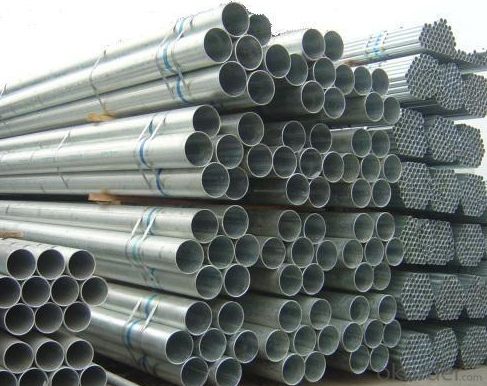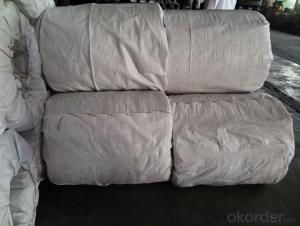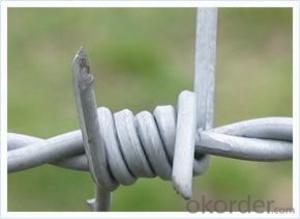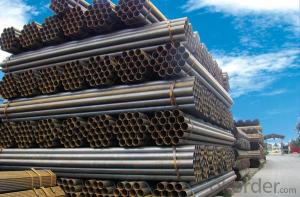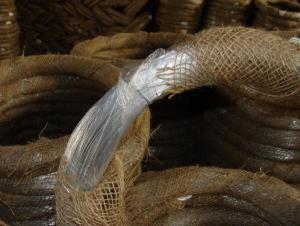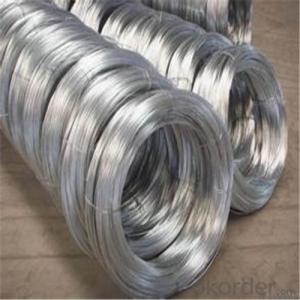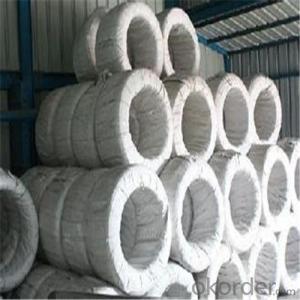Hot Dipped Galvanized Steel Pipe Best Seller
- Loading Port:
- Tianjin
- Payment Terms:
- TT OR LC
- Min Order Qty:
- 25 m.t.
- Supply Capability:
- 8000 m.t./month
OKorder Service Pledge
OKorder Financial Service
You Might Also Like
1、Structure of Hot Dipped Galvanized Steel Pipe Best Seller:
To be used for conveying gas, water, oil and so on.
2、Main Features of Hot Dipped Galvanized Steel Pipe Best Seller:
• High manufacturing accuracy
• High strength
• Small inertia resistance
• Strong heat dissipation ability
• Good visual effect
• Reasonable price
3、Hot Dipped Galvanized Steel Pipe Best Seller Specification:
Standard | GB, DIN, ASTM ASTM A106-2006, ASTM A53-2007 |
Grade | 10#-45#, 16Mn 10#, 20#, 45#, 16Mn |
Thickness | 8 - 33 mm |
Section Shape | Round |
Outer Diameter | 133 - 219 mm |
Place of Origin | Shandong, China (Mainland) |
Secondary Or Not | Non-secondary |
Application | Hydraulic Pipe |
Technique | Cold Drawn |
Certification | API |
Surface Treatment | factory state or painted black |
Special Pipe | API Pipe |
Alloy Or Not | Non-alloy |
Length | 5-12M |
Outer Diameter | 21.3-610mm |
Grade | 20#, 45#, Q345, API J55, API K55, API L80, API N80, API P110, A53B |
Standard | ASME, ASTM |
1) Material:20#(ASTM A 106/A53 GRB.API5LGRB,GB),45#,16Mn,10#.
2) Specification range:OD:21.3-610mm,WT:6-70mm,length:6-12m or according to the requirement of clients.
3) Excutive standards:GB,ASME API5L.ASTM A 106/A53,Despite of the above standards,we can also supply seamless steel pipe with standard of DIN,JIS,and so on,and also develop new products according to the requirements of our clients!
4) Surface:black lacquered,varnish coating or galvanized.
5) Ends:Beveled or square cut,plastic capped,painted.
6) Packing:bundles wrapped with strong steel strip,seaworthy packing.
4、Packaging & Delivery
Packaging Details: | seaworthy package,bundles wrapped with strong steel strip |
Delivery Detail: | 15-30days after received 30%TT |
5、FAQ of Hot Dipped Galvanized Steel Pipe Best Seller:
①How is the quality of your products?
Our products are manufactured strictly according to national and internaional standard, and we take a test
on every pipe before delivered out. If you want see our quality certifications and all kinds of testing report, please just ask us for it.
Guaranteed: If products’ quality don’t accord to discription as we give or the promise before you place order, we promise 100% refund.
②How about price?
Yes, we are factory and be able to give you lowest price below market one, and we have a policy that “ for saving time and absolutely honest business attitude, we quote as lowest as possible for any customer, and discount can be given according to quantity”,if you like bargain and factory price is not low enough as you think, just don’t waste your time.Please trust the quotation we would give you, it is professional one.
③Why should you chose us?
Chose happens because of quality, then price, We can give you both.Additionally, we can also offer professional products inquiry, products knowledge train(for agents), smooth goods delivery, exellent customer solution proposals.Our service formula: good quality+good price+good service=customer’s trust
SGS test is available, customer inspection before shipping is welcome, third party inspection is no problem.
6、Hot Dipped Galvanized Steel Pipe Best Seller Images:
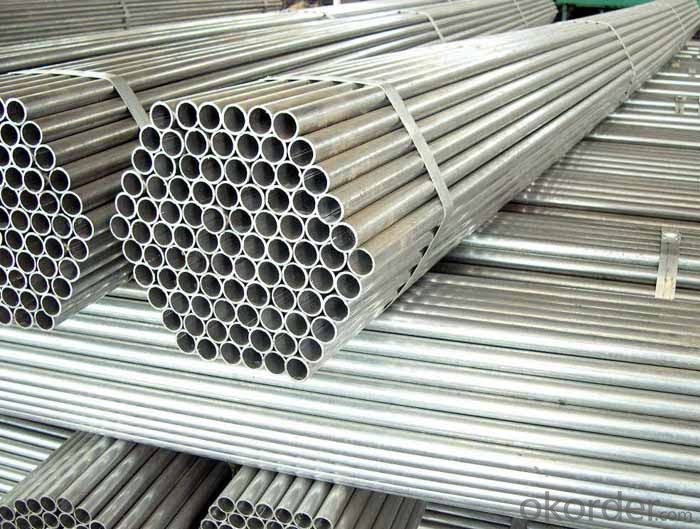
- Q: What are the common applications of steel pipes in the water distribution system?
- The common applications of steel pipes in the water distribution system include carrying potable water from the water treatment plants to homes and businesses, transporting water for irrigation purposes, and facilitating the flow of water in industrial processes. Steel pipes are often preferred due to their durability, resistance to corrosion, and ability to handle high water pressure.
- Q: How do you inspect steel pipes for defects?
- The inspection of steel pipes for defects requires a methodical approach that combines visual examination, non-destructive testing (NDT) techniques, and specialized equipment. The following are the typical steps undertaken to inspect steel pipes for defects: 1. Visual Examination: Commence by visually inspecting the external surface of the pipe, searching for any visible indications of defects, including cracks, dents, or corrosion. Particular attention should be given to welds, joints, and areas prone to stress or damage. 2. Ultrasonic Testing (UT): Ultrasonic testing is commonly employed to identify internal defects in steel pipes. This technique involves transmitting ultrasonic waves into the pipe and then interpreting the echoes received. Any irregularities in the internal structure, such as cracks or voids, can be identified and analyzed. 3. Magnetic Particle Inspection (MPI): MPI is a widely utilized technique for detecting defects on or near the surface, such as cracks, seams, or other discontinuities. This method involves applying a magnetic field to the pipe and subsequently applying ferromagnetic particles (usually iron-based) to the surface. These particles accumulate and form visible indications at areas where magnetic flux leakage is caused by defects. 4. Eddy Current Testing (ECT): Eddy current testing is suitable for detecting surface and near-surface defects in conductive materials like steel. This technique involves inducing an alternating current into the pipe and monitoring changes in the electrical currents induced by any present defects. These changes are then analyzed to identify and evaluate the defects. 5. Radiographic Testing (RT): Radiographic testing is conducted by exposing the steel pipe to X-rays or gamma rays and capturing radiographic images of the pipe. This technique allows for the detection of internal defects, such as cracks, porosity, inclusions, or variations in wall thickness. The radiographic images are subsequently examined for any indications of defects. 6. Dye Penetrant Inspection (DPI): DPI is a method used to identify defects on the surface of steel pipes. It involves applying a liquid dye to the surface, which penetrates into any surface cracks or flaws. After sufficient time for the dye to seep in and react, excess dye is removed, and a developer is applied to draw out the dye from the defects, rendering them visible. 7. Pressure Testing: Pressure testing entails pressurizing the steel pipe to a predetermined level and monitoring for any pressure drops or leaks. This test ensures that the pipe can withstand the required pressure without any structural defects. It is worth noting that the choice of inspection technique depends on various factors, such as the type of defect being sought, the size and characteristics of the pipe, and the specific industry standards and regulations. Inspection professionals with expertise in NDT methods and equipment are typically employed to ensure precise and dependable results.
- Q: How are steel pipes used in the food processing industry?
- Steel pipes are commonly used in the food processing industry for various purposes such as transporting liquids, gases, and solids, as well as for conveying hot water, steam, and chemicals. These pipes are known for their durability, corrosion resistance, and ability to withstand high temperatures, making them ideal for applications where strict hygiene and safety standards are essential. Steel pipes are used in food processing plants for tasks like transferring ingredients, transporting processed products, and maintaining a sterile environment through steam cleaning and sanitization processes.
- Q: What is hot rolled steel pipe? What is a cold drawn steel tube?
- Hot rolling is relative to cold rolling, cold rolling is performed under recrystallization temperature, while hot rolling is rolling above recrystallization temperature.
- Q: How are steel pipes used in the mining and mineral processing industry?
- Steel pipes are used in the mining and mineral processing industry for various purposes such as transporting fluids, conveying materials, and providing structural support. They are commonly used in the construction of underground mine shafts, pipelines, and equipment for transporting and processing minerals. The durability and strength of steel pipes make them ideal for withstanding the harsh conditions and demanding requirements of the mining industry.
- Q: What are the different types of pipe connections used with steel pipes?
- There are several types of pipe connections commonly used with steel pipes. Some of the most common types include: 1. Threaded connections: These connections involve threading the ends of the pipe and using threaded fittings to connect them. This type of connection is typically used for smaller diameter pipes and is easy to install and dismantle. 2. Welded connections: Welding is a common method used to connect steel pipes. It involves joining the ends of the pipes together by melting the metal and fusing them together. Welded connections are durable and strong, making them suitable for high-pressure applications. 3. Flanged connections: Flanges are used to connect pipes by bolting them together. Flanged connections are commonly used in industrial applications and are often used for larger diameter pipes or when the pipe needs to be easily disassembled for maintenance purposes. 4. Grooved connections: Grooved connections involve using grooved fittings that have grooves on the inside to connect the pipes. These connections are often used in fire protection systems and are quick and easy to install. 5. Compression connections: Compression fittings are used to connect steel pipes by compressing a ferrule onto the pipe. This type of connection is commonly used in plumbing applications and provides a tight and secure seal. 6. Mechanical connections: Mechanical connections, such as couplings or clamps, are used to connect steel pipes without the need for welding or threading. These connections are often used for temporary or emergency repairs. Each type of pipe connection has its advantages and disadvantages, and the choice of connection method will depend on factors such as the application, pipe size, and installation requirements. It is important to carefully consider these factors to ensure a secure and reliable connection for steel pipes.
- Q: How are steel pipes used in the renewable energy industry?
- Steel pipes are widely used in the renewable energy industry for various purposes. They are commonly used in the construction of wind turbine towers, where they provide structural support and stability. Steel pipes are also used in the installation of solar panel systems, serving as a reliable conduit for transporting fluids, such as water or heat transfer fluids, within the system. Additionally, steel pipes are utilized in the transportation of renewable energy resources, such as natural gas or hydrogen, as they offer durability and strength to withstand high-pressure conditions.
- Q: How are steel pipes used in the construction of skyscrapers?
- Steel pipes are commonly used in the construction of skyscrapers for various purposes. They are primarily used as structural components, providing strength and stability to the building's framework. Steel pipes are used to create columns, beams, and trusses, which support the weight of the entire structure. Additionally, steel pipes are used for plumbing and HVAC systems, allowing for efficient distribution of water, air, and other utilities throughout the building. Overall, steel pipes play a crucial role in the construction of skyscrapers, ensuring their durability, safety, and functionality.
- Q: How are steel pipes protected against fire?
- Steel pipes are protected against fire through various methods such as applying intumescent coatings, using fire-resistant insulation, or encasing them in fire-rated enclosures. These measures help to delay the heat transfer and maintain the structural integrity of the pipes during a fire, allowing them to withstand high temperatures and prevent the spread of fire.
- Q: Is there any difference between HFW steel pipe and ERW steel pipe?
- The difference between ERW (longitudinal resistance welding) and HFW (high frequency welding) is mainly due to the different principle.
Send your message to us
Hot Dipped Galvanized Steel Pipe Best Seller
- Loading Port:
- Tianjin
- Payment Terms:
- TT OR LC
- Min Order Qty:
- 25 m.t.
- Supply Capability:
- 8000 m.t./month
OKorder Service Pledge
OKorder Financial Service
Similar products
Hot products
Hot Searches
Related keywords
